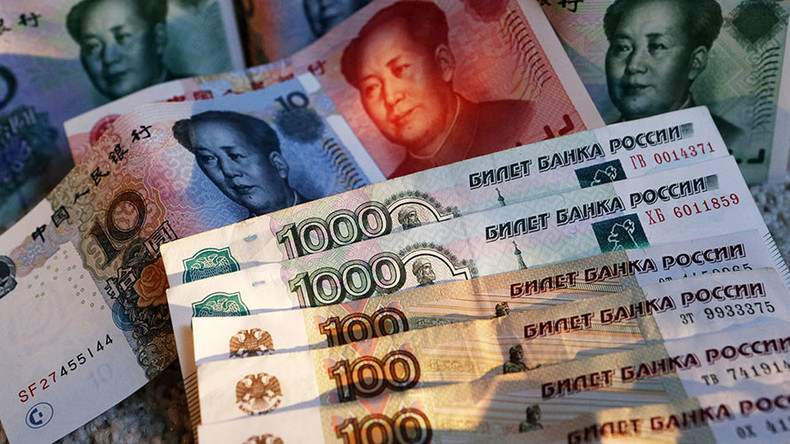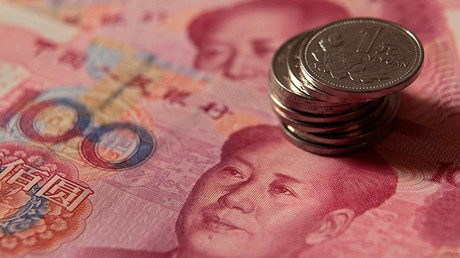Ruble-yuan trade between Russia & China makes dollar odd man out

Moscow and Beijing are looking to extend the three-year $25 billion yuan-ruble swap deal and seek greater use of domestic currencies in trade. Experts have told RT this is likely to cut dependence on the US dollar.
This week, Russian Prime Minister Dmitry Medvedev said “the financial regulators of the two countries are working on extending the bilateral currency swap agreement for the next three years."
“In 2016, the share of national currencies in payments for exports of Russian goods and services was 13 percent, imports 16 percent. In the first quarter of 2017, these figures rose to 16 percent and 18 percent, respectively,” said Russian Deputy Prime Minister Sergey Prikhodko.
Both China and Russia are committed to promoting their own currencies, and this means the dollar share is likely to shrink.
“That's a fact, and it's not just indicative of the volume of transactions in national currencies. Russia and China are already working together on several BRICS multilateral agreements. Trade in national currencies is just one aspect of the general trend that has emerged in the world over the past decade,” a Moscow-based analyst Mehdi Mehdiyev told RT’s German website, RT Deutsch.
Trade in national currencies protects countries against "external influences," helps to avoid risks of fluctuations in exchange rates; swap agreements also help reduce the budget deficit, Mehdiyev said.
Chinese financial expert Andrew KP Leung told RT Deutsch that for Moscow, trading in national currencies is a way to bypass Western sanctions, and for Beijing to promote the yuan.
"China is one of the largest buyers of Russian energy exports. The extension of the currency swap will reduce transaction costs for Russia and China. Trading in yuan will reduce Russia's dependency on the US dollar," said Leung.
Sarkis Tsaturyan, the Russian political scientist and editor-in-chief of the Russian expert network Realist, said that de-dollarization will be a long and painful process that can hit both China and Russia.
“Gradually, Russia and China are moving away from the US dollar, but this is a process that can take 15 to 20 years, as the economy of China is based on the dollar. The currency reserves of China were over $3 trillion in July 2017. Each Chinese household owns up to $2,000 in US government bonds. Under these circumstances, it is unlikely that Beijing will collapse the dollar. It would be a shot in its own knee,” he said.
At the moment, the US dollar’s share of the world trade is almost 43 percent, while the yuan has less than two percent. China has developed a payment system called CIPS for cross-border payments with the yuan to promote the currency as a global financial instrument.



0 Comments:
Post a Comment
Subscribe to Post Comments [Atom]
<< Home